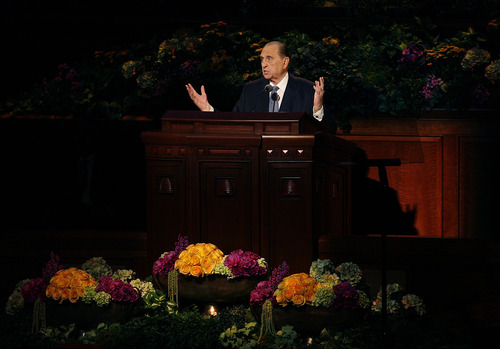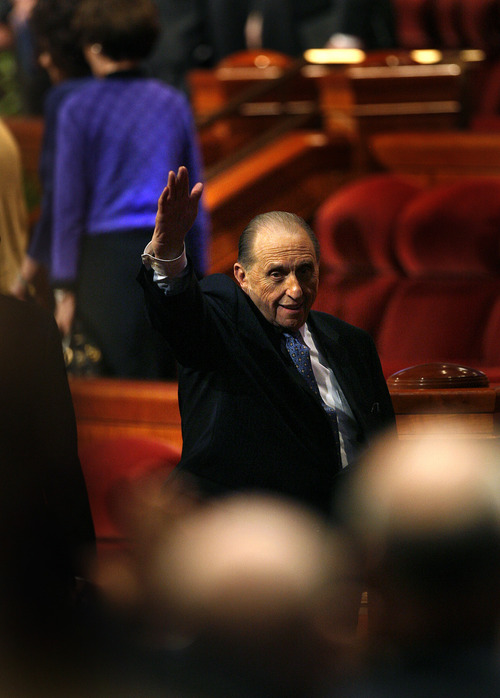This is an archived article that was published on sltrib.com in 2013, and information in the article may be outdated. It is provided only for personal research purposes and may not be reprinted.
Washington • In a Senate floor speech Wednesday, Majority Leader Harry Reid cited LDS Church President Thomas S. Monson's urging to follow one's courage in conviction as the Mormon Democrat said he would support an assault weapons ban.
Reid, who didn't allow such a ban to be included in the main bill on gun control but now says he'll back an amendment to add it, quoted Monson's 1986 address to a General Conference of the Church of Jesus Christ of Latter-day Saints about how courage is needed to say yes and no in life.
" 'Life's journey is not traveled on a freeway devoid of obstacles, pitfalls and snares,' " Reid quoted Monson as saying. " 'Rather it is a pathway marked by forks and turnings. Decisions are constantly before us. To make them wisely, courage is needed. The courage to say no.' "
"The courage today, Mr. President, to say yes," Reid added, addressing the Senate president pro tem during a morning session.
Monson, who was the second counselor in the LDS First Presidency in 1986, did not address assault weapons in his speech, nor did Reid claim that Monson supported such a ban.
Reid said he believes in the right to own a gun but that there is no reason for America to allow its citizens to arm themselves with so-called assault weapons.
"Assault weapons have one purpose and one purpose only: to kill a large number of people really quick," Reid said. "This goes well beyond the purpose of self defense."
The Senate later Wednesday was to take up nine amendments to the gun-control legislation now being debated in the wake of the Newtown, Conn., school shooting and other mass shootings in recent years.
As part of a series of votes this evening, the Senate will decide whether to add an amendment by Sen. Dianne Feinstein, D-Calif., that would reinstate an assault weapons ban that lapsed eight years ago.
Utah Sens. Orrin Hatch and Mike Lee are opposed to such a measure.





